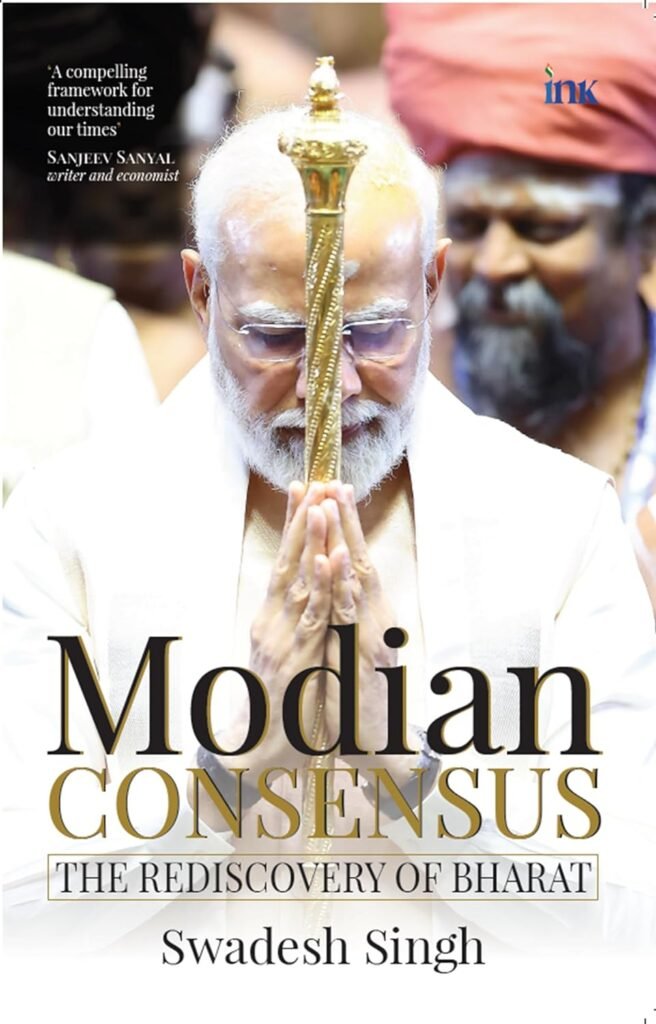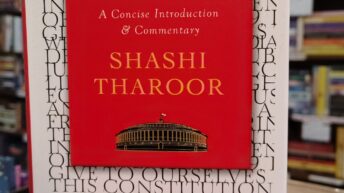
Having served as the Chief Minister of Gujarat for 13 years before assuming the role of Prime Minister, Narendra Modi has evolved into a “People’s leader.” Much has been written about his style of governance and ‘Brand Modi’ over the years. Recently, I stumbled upon a book titled “The Modian Consensus” by political scientist Swadesh Singh.
In this book, Singh defines consensus as a significant agreement supported by a considerable portion of society. He introduces a new consensus termed “The Modian Consensus.” Singh delves into various other examples of consensus that have shaped India’s journey, including the Civilisational Consensus, Gandhian Consensus, Nehruvian Consensus, Post-Nehruvian or Secular Consensus, and finally, the Modian Consensus.
My curiosity is piqued by this latest consensus.
As a development professional trained in social work at TISS, the chapter on Welfare and its connection to the idea of the “Modian Consensus” is well-articulated, supported by evidence on policies implemented by the Modi government and their grassroots implementation in real time. We have all become accustomed to stories of leakage and corruption within the PDS system. However, with the introduction of Direct Benefit Transfer schemes, Modi has bestowed dignity upon marginalised people. The book recounts the story of Kuwarbai Yadav, a farmer from Chhattisgarh, who sold his goat to fund the opening of a toilet, inspired by Modi’s emphasis on making Bharat Open Defecation Free.
This insightful book traces Narendra Modi’s remarkable journey from his tenure as Chief Minister to his current position as Prime Minister of India. Utilising stories collected by senior journalist Uday Mahurkar, the author sheds light on Modi’s strategic initiatives to empower farmers and stimulate economic growth, notably exemplified by the successful Gujarat Investor’s Summit. Dr. Singh goes deeper into the ideological foundations of Modi’s governance, illuminating the influences of eminent figures such as Dr. Ambedkar, Deen Dayal Upadhyaya, and Atal Bihari Vajpayee. These luminaries, as portrayed in the book, laid the bases for Modi’s social policies, which prioritise grassroots outreach and the preservation of social justice principles. Through thought-provoking analogies and insightful analysis, the author emphasises the importance of consensus-building in contemporary governance, providing readers with an inside view of Modi’s leadership and its broader societal implications. Furthermore, Dr. Singh intriguingly highlights how the Modian Consensus has influenced opposition parties, compelling them to adopt similar welfare models, as evidenced by the experiences of Gujarat and Chhattisgarh, the latter under opposition rule.
What makes this book relevant in today’s political age?
As a student of social science with a profound interest in Indian politics, I found “The Modian Consensus” to be a refreshing departure from conventional political discourse. This book fills a significant void by presenting intellectual arguments in a language accessible to the masses, making it attractive and engaging for readers from all walks of life.
Unlike many other works that simply heap praise on the Prime Minister, this book offers a critical framework for understanding the intricacies of Indian politics. It methodically surveys the transformations that have occurred since 2014 and analyzes how political narratives are constructed and disseminated.
What sets this book apart is its exploration of how consensus is built around an individual’s appeal and how others react to it. By tracing the historical origins and journey of India from the Civilisational Consensus to the Gandhian, Nehruvian, Post-Nehruvian, and Modian ones, the author enables his readers to acquire a comprehensive understanding of the political landscape of Bharat. His book is an invaluable resource for anyone seeking to decipher the evolving processes of political mainstreaming in India.
Overall, “The Modian Consensus” is a must-read for anyone interested in Indian politics. It offers a fresh perspective on the past and present situation of the nation that will undoubtedly spark thought-provoking discussions and further inquiry into the nature of political consensus-building in contemporary India.






पुस्तक एक वेचारकी है।